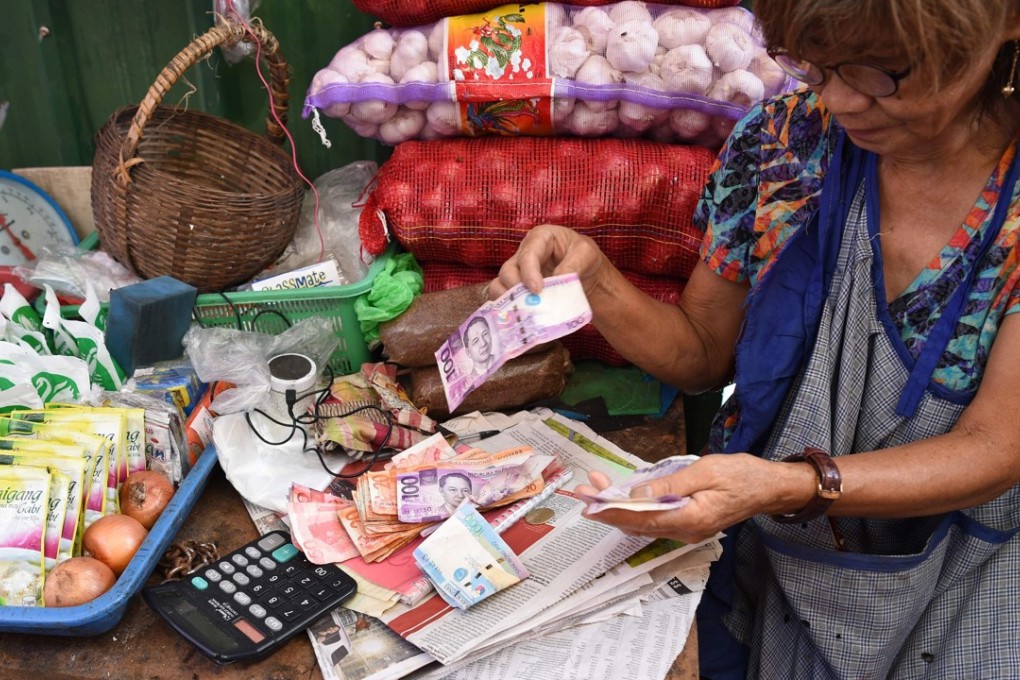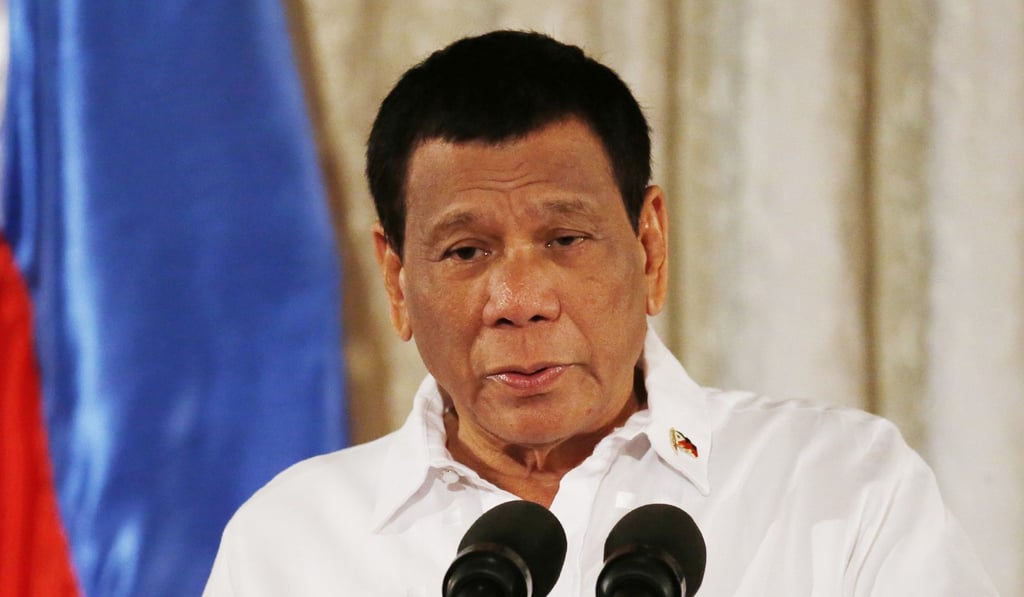Philippines’ economic woes could hurt President Rodrigo Duterte’s popularity but his government remains upbeat
Philippine inflation rose for a ninth straight month in September, to a near-10-year high, creating a potential stumbling block for the president as voters look to May’s midterm elections

An inflation crisis and slumping currency should be enough to focus Philippine President Rodrigo Duterte’s attention on his nation’s economic woes. However, the government remains optimistic, with Socioeconomic Planning Secretary Ernesto Pernia predicting inflation will fall back in line with the government’s 2-4 per cent target range “early next year”.
Philippine inflation rose for a ninth straight month in September but has likely peaked at 6.7 per cent, a nine-year high, and will begin decelerating rapidly starting in October, Pernia told the South China Morning Post on the sidelines of the IMF and World Bank summit in Bali.
A decline in inflation in October would likely keep the Philippine central bank, the Bangko Sentral ng Philipinas (BSP), from raising interest rates at its next meeting in November, he predicted. The BSP has raised rates at each of its last four meetings by a total of 1.5 per cent.

Pernia blamed the sharp acceleration in inflation this year on food prices, particularly prices of staples such as rice, chicken, fish and vegetables. The government had already taken action to address the problem by opening up imports, he said.
“Now anyone can import [food], no need for a licence,” he said, predicting imports would “flood” the market and bring down inflation.